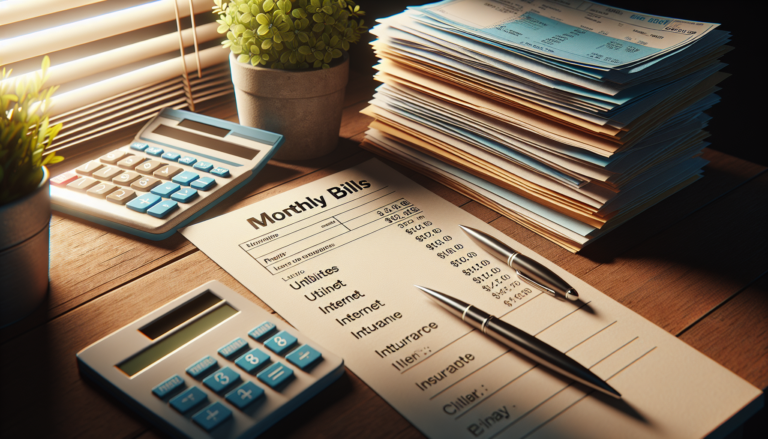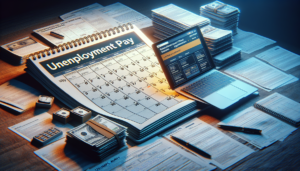Understanding the Basic Costs of Renting an Apartment
When renting an apartment, it’s important to understand that the monthly rent payment outlined in your lease agreement is just one of several bills you’ll be responsible for. Before signing a lease, be sure to factor in all the potential costs associated with renting to ensure you can afford the apartment and maintain financial stability.
Monthly Rent Payment
Your monthly rent payment will likely be your largest expense when renting an apartment. Rent amounts vary widely based on the apartment’s location, size, amenities, and property type. Most lease agreements require rent to be paid on the first of each month, so be sure to budget accordingly.
Security Deposit
Nearly all apartments require a security deposit when signing a lease. This refundable deposit is usually equivalent to one month’s rent and acts as protection for the landlord against potential damages. As long as you keep the apartment in good condition, you should receive your security deposit back at the end of your lease.
First Month’s Rent
In addition to a security deposit, most landlords require the first month’s rent payment upfront before you move in. Plan for this initial payment in addition to other move-in costs like buying furniture, updating utilities, and purchasing renters insurance.
Common Utility Bills for Renters
When budgeting for an apartment, be sure to factor in utility bills in addition to your monthly rent. While some properties include certain utilities in the rent price, most require tenants to set up and pay for their own utilities.
Electricity Bill
Electricity is an essential utility that powers your lights, appliances, and electronics. The average cost of electricity for renters is around $50-$100 per month, but this can vary based on usage and the size of your apartment.
Water Bill
Another key utility cost is your water bill for sinks, showers, toilets, and appliances like dishwashers and washing machines. Some properties include water in the rent while others have tenants set up their own accounts. Expect to pay around $20-$60 per month if you’re responsible for the water bill.
Natural Gas Bill
If your apartment has a gas stove, oven, or heating system, you’ll likely receive a natural gas bill. Natural gas tends to be less expensive than electricity, with average monthly costs for renters around $30-$50. Keep in mind that costs may increase in winter months if you have gas heating.
Internet and Cable Bills
While not always essential, internet and cable are common utilities many renters desire. Cable bills can range from $20-$100+ per month depending on your subscription package. For internet, expect to pay around $30-$60 per month for standard speeds.
| Utility | Average Monthly Cost |
|---|---|
| Electricity | $50-$100 |
| Water | $20-$60 |
| Natural Gas | $30-$50 |
| Internet | $30-$60 |
| Cable | $20-$100+ |
Additional Fees and Costs
On top of rent and utilities, be aware of these additional costs that may come with renting an apartment:
Pet Fees and Deposits
If you’re planning to rent with a pet, expect to pay pet fees on top of your rent. Many properties charge a monthly pet fee, usually between $20-$50 per pet, plus an upfront pet deposit. Factor in these additional costs when searching for a pet-friendly apartment.
Parking Costs
Depending on your apartment’s location, you may need to pay for a parking spot. Monthly parking fees can range anywhere from $20 up to $200 in major cities. Be sure to ask about parking options and costs before signing a lease.
Renter’s Insurance
While not always required, renter’s insurance is highly recommended to protect your personal belongings from damage or theft. Policies are quite affordable, usually around $15-$20 per month, and can provide peace of mind during your rental period.
Budgeting and Financial Planning for Renters
With all the various costs that come with renting an apartment, careful budgeting and financial planning are essential. Here are some tips to help you manage rental expenses:
Creating a Budget
Start by listing out all your monthly income sources and expenses, including rent, utilities, additional fees, groceries, transportation costs, and discretionary spending. Ideally, your rent should not exceed 30% of your monthly income. If your current income doesn’t support your desired apartment, consider looking for a cheaper place or finding ways to increase your earnings.
Using Financial Tools
Take advantage of budgeting apps and online financial tools to help track your spending and stay on top of due dates. Setting up automatic payments for your rent and utilities can also help you avoid late fees and potential hits to your credit score.
Emergency Fund
As a renter, it’s wise to have an emergency fund with at least 3 months’ worth of living expenses saved up. This crucial safety net can help you cover rent and other bills in case of job loss, medical emergencies, or unexpected costs like car repairs or vet bills.
Strategies for Reducing Costs
Look for ways to reduce your monthly expenses to make renting more affordable. Some ideas:
- Get a roommate to split rent and utility costs
- Choose an apartment with energy-efficient appliances to lower utility bills
- Take advantage of move-in specials for lower rent or reduced deposits
- Opt for a cheaper internet or cable plan
- Live in a more affordable neighborhood or downsize to a smaller apartment
Tips for First-Time Renters
If you’re renting an apartment for the first time, the process can feel overwhelming. Keep these tips in mind to set yourself up for success:
Clear Communication with Landlords
Before signing a lease, ensure you fully understand your rental responsibilities and have open, thoughtful conversations with your landlord. Don’t be afraid to ask about all potential costs, apartment rules, guest policies, and other important concerns. Having a transparent, cooperative relationship with your landlord can make your rental experience much smoother.
Considering a Roommate
Especially in expensive rental markets, getting a roommate can drastically reduce your housing costs. Splitting rent, utilities, and other shared expenses helps make apartments far more affordable. Just be sure to establish clear financial expectations and open lines of communication with any potential roommates.
Renting an apartment involves much more than just making your monthly rent payment. With careful financial planning, budgeting, and an understanding of all potential costs, you can successfully navigate the rental process and find an affordable apartment to call home.
See also:
- What Is Semi Monthly Pay? Understanding the Basics and Benefits
- The Strategic Advantage of Aircraft Engine Stands Rent in Modern Aviation
- How to Pay for Law School: Essential Tips and Strategies
- When Does Gap Insurance Not Pay? Key Insights and Scenarios
- How to Use Google Pay on iPhone: A Step-by-Step Guide






